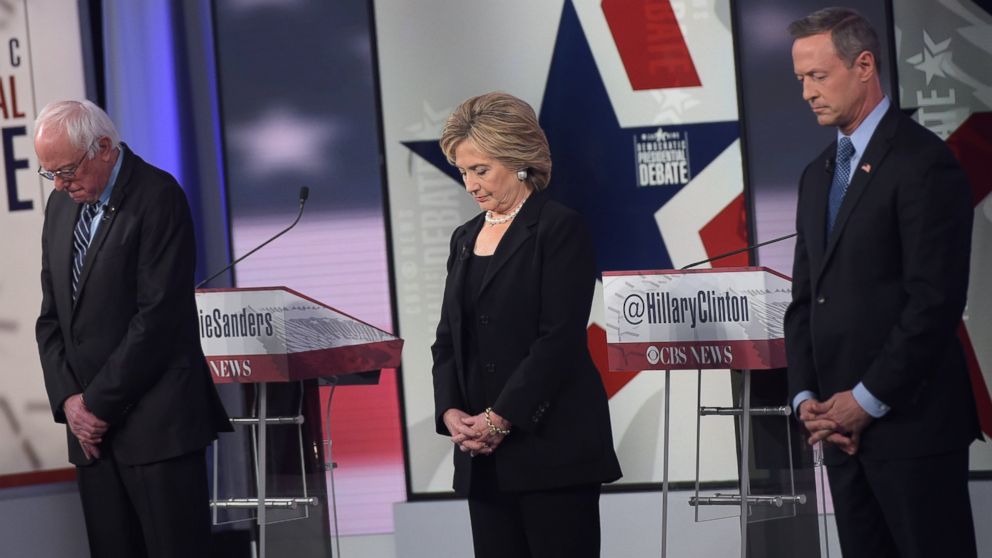Analysis: Debate Reveals Democratic Uncertainties on Foreign Policy
The Democrats came to Iowa Saturday night to have a debate, in a somber moment.

Des Moines, Iowa -- The Democrats came to Iowa Saturday night to have a debate, in a somber moment in a shaken nation.
It turned into something less than an outright fight but ultimately quite a bit more – a potentially pivotal moment in a presidential race that’s careened between silly storylines for much of the year.
The mostly polite foreign-policy discussion among the shrunken 2016 field revealed a reordered campaign, shaken by real-world events in a way even Donald Trump’s belt buckle couldn’t block.
On stage was a clear Democratic frontrunner and two challengers treading in to some uncomfortable territory in the wake of the Paris attacks and unrest around the globe, all under a Democratic president the candidates don’t want to undermine.
On ISIS, Hillary Clinton was clear: “It cannot be contained. It must be defeated.”
A few sentences later, she added: “But this cannot be an American fight, although American leadership is essential.”
Martin O’Malley sought to disagree, though not entirely.
“This actually is America’s fight. It cannot solely be America’s fight,” he countered, making an argument for “fresh approaches” that suggested Clinton is a candidate of the past.
Bernie Sanders again cited the Iraq war – which Clinton supported, and Sanders opposed – as a key reason for ISIS’ rise, and as a lesson for how to confront the threats.
“The United States cannot do it alone,” Sanders said.
Neither O’Malley nor Sanders threw Clinton off her stride. But she and her rivals struggled with how best to frame America’s role in the world, in the wake of fresh terrorist attacks and coming off of seven years under President Obama.
All three candidates were on surer footing talking about domestic policy – immigration, the minimum wage, income inequality, college loans. There, though, Clinton found herself outflanked on populist grounds, defending a lower minimum wage than her rivals and taking particular fire for her plans to reform Wall Street.
“Not good enough,” Sanders thundered in response to Clinton’s plan to reign in Wall Street. “Why over her political career has Wall Street been a major – the major – campaign contributor to Hillary Clinton?”
Clinton responded in part by citing her work in responding to 9/11 – in a curious formulation that seemed to justify donations from big banks by citing the war on terrorism.
“I did spend a whole lot of time and effort helping them rebuild. That was good for New York. It was good for the economy, and it was a way to rebuke the terrorists who had attacked our country,” she said.
If the presidential race is turning toward foreign policy now, it may be Republicans who can offer crisper answers. None of the three Democrats would accept the concept of a war with “radical Islam”; all Republicans on a similar debate stage surely would.
Clinton is as strong a frontrunner as ever, and nothing happened Saturday night to change that. Sanders even declined again to make an issue of her email server.
“I am still sick and tired of Hillary Clinton’s emails,” he said.
The debate underscored many of Clinton’s strengths, including on foreign policy. Asked to cite a challenge from her past, she talked about advising President Obama to authorize the raid that would kill Osama bin Laden – an unchallenged success of the current administration.
Yet for a candidate and a party hoping to look forward, one line stood out as exceedingly likely to be cited in a Republican ad campaign, and soon.
“I come from the '60s, a long time ago,” Clinton said at one point, talking about college activism but opening herself up to assertions that it’s hard for her to represent the future.




